From Brokenness to Restoration

Have you ever felt too broken to be made whole again?
Life wounds us through pain, betrayal, loss, sin or even our own poor choices. At times, it feels like no one truly sees the depth of our struggle. But there is One who does. And not only does He see — He heals.
In Jeremiah 30:17, we find a powerful promise straight from the heart of God: “For I will restore health unto thee, and I will heal thee of thy wounds…” This is more than ancient prophecy — it's a timeless invitation for you today. It’s God's word of hope, healing, and restoration spoken into the ruins of our lives.
📖 Jeremiah 30:17
"For I will restore health unto thee, and I will heal thee of thy wounds, saith the LORD; because they called thee an Outcast, saying, This is Zion, whom no man seeketh after."
This Bible study will take you deep into the meaning of this verse, uncovering how God responds to our pain, our rejection, and our broken places. Whether you're searching for spiritual healing, emotional renewal, or simply a reminder that you're not forgotten, this passage holds life-changing truth for your journey.
Let’s walk through the Scriptures together and discover the healing hand of God — the One who restores what others have given up on.
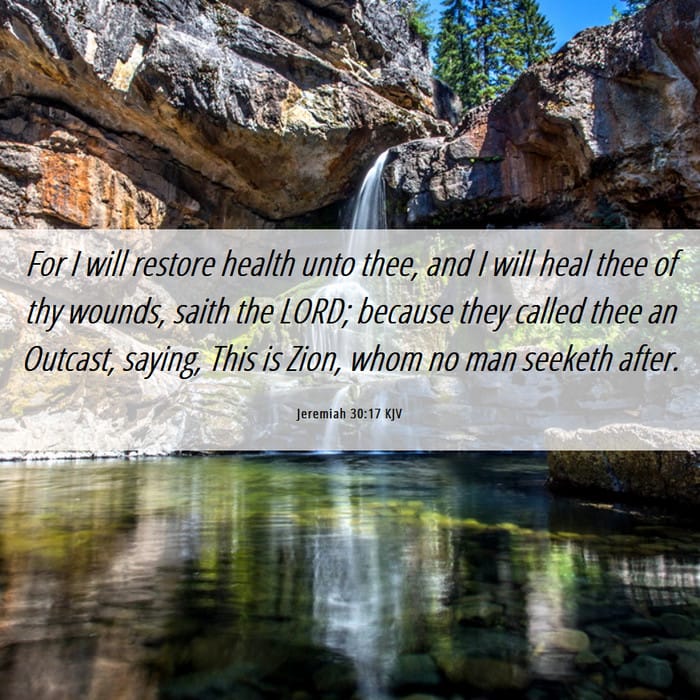
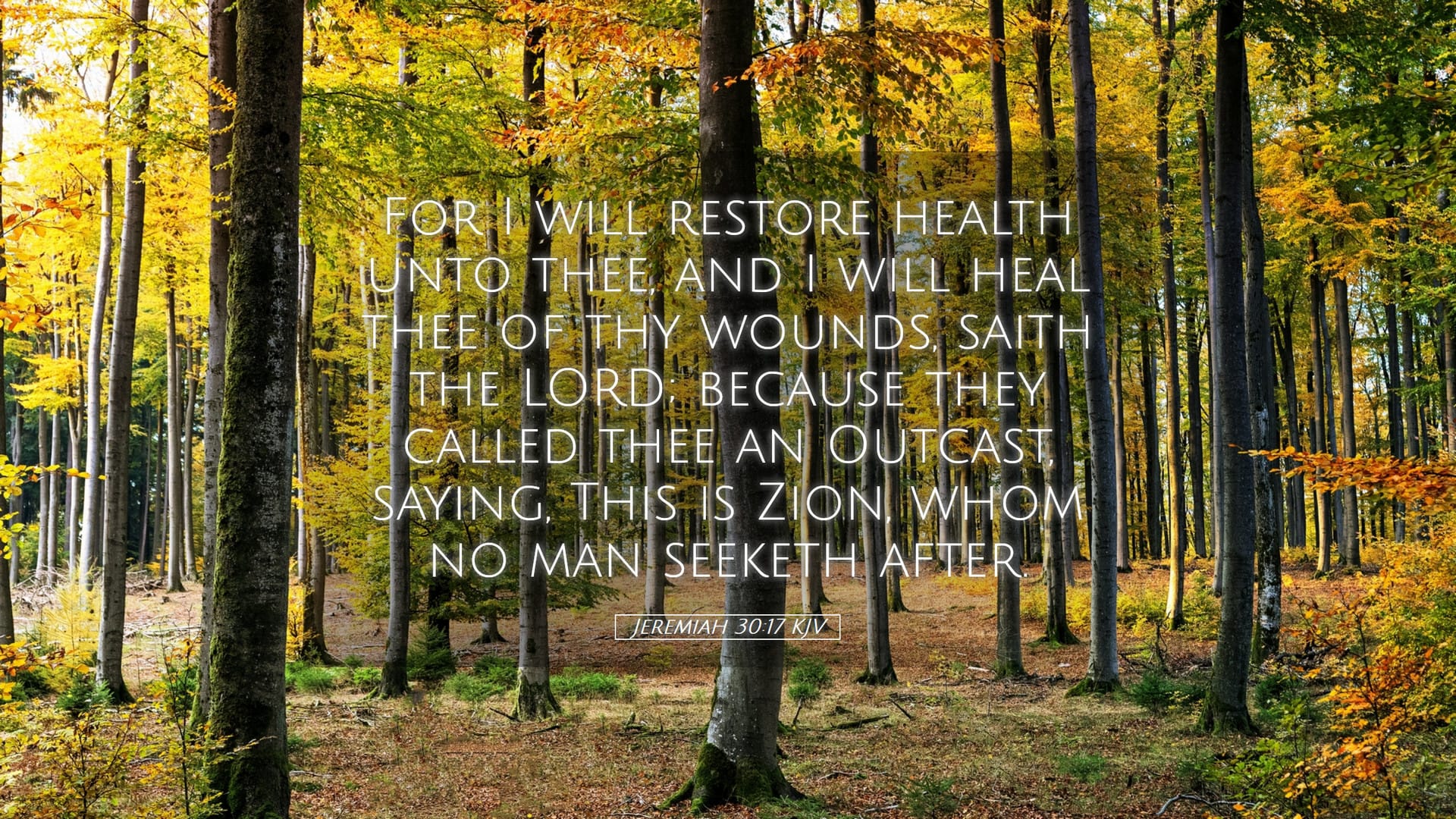
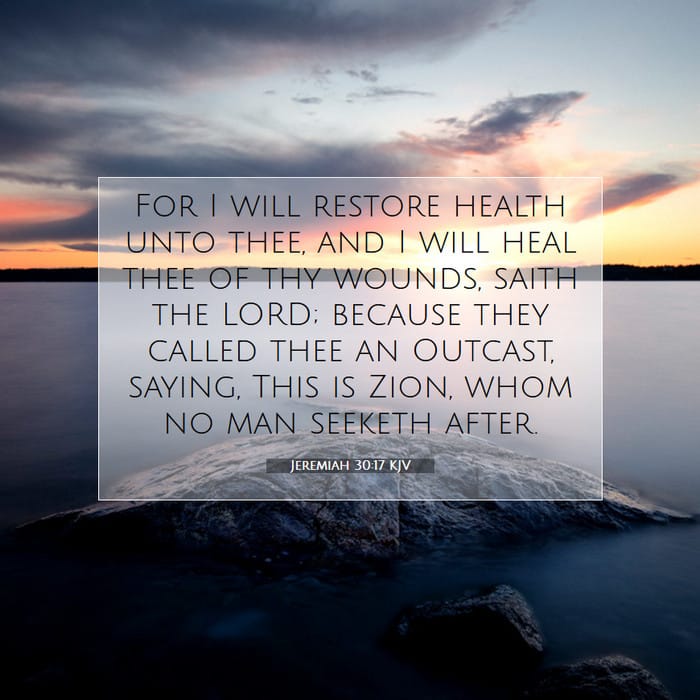
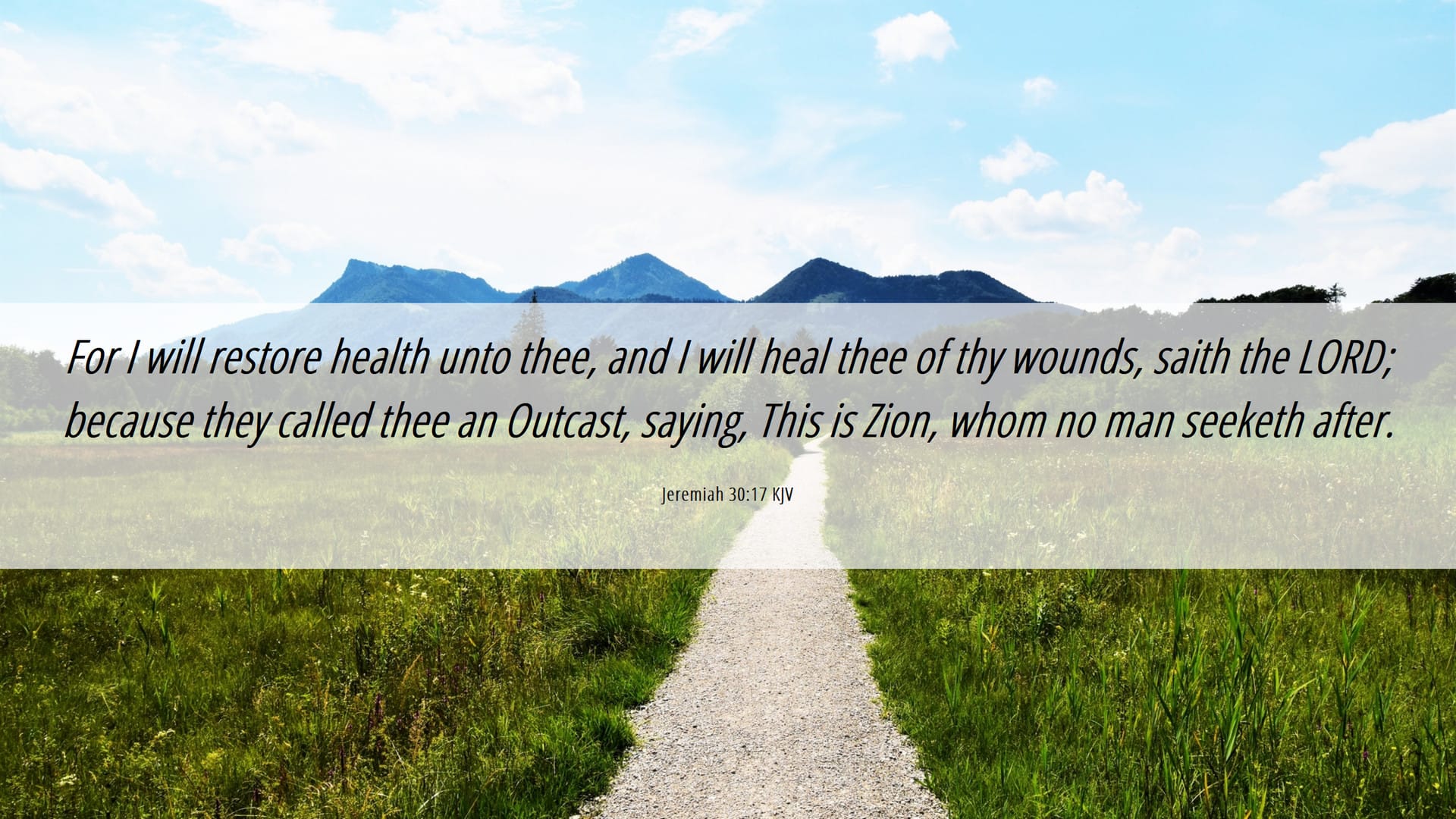
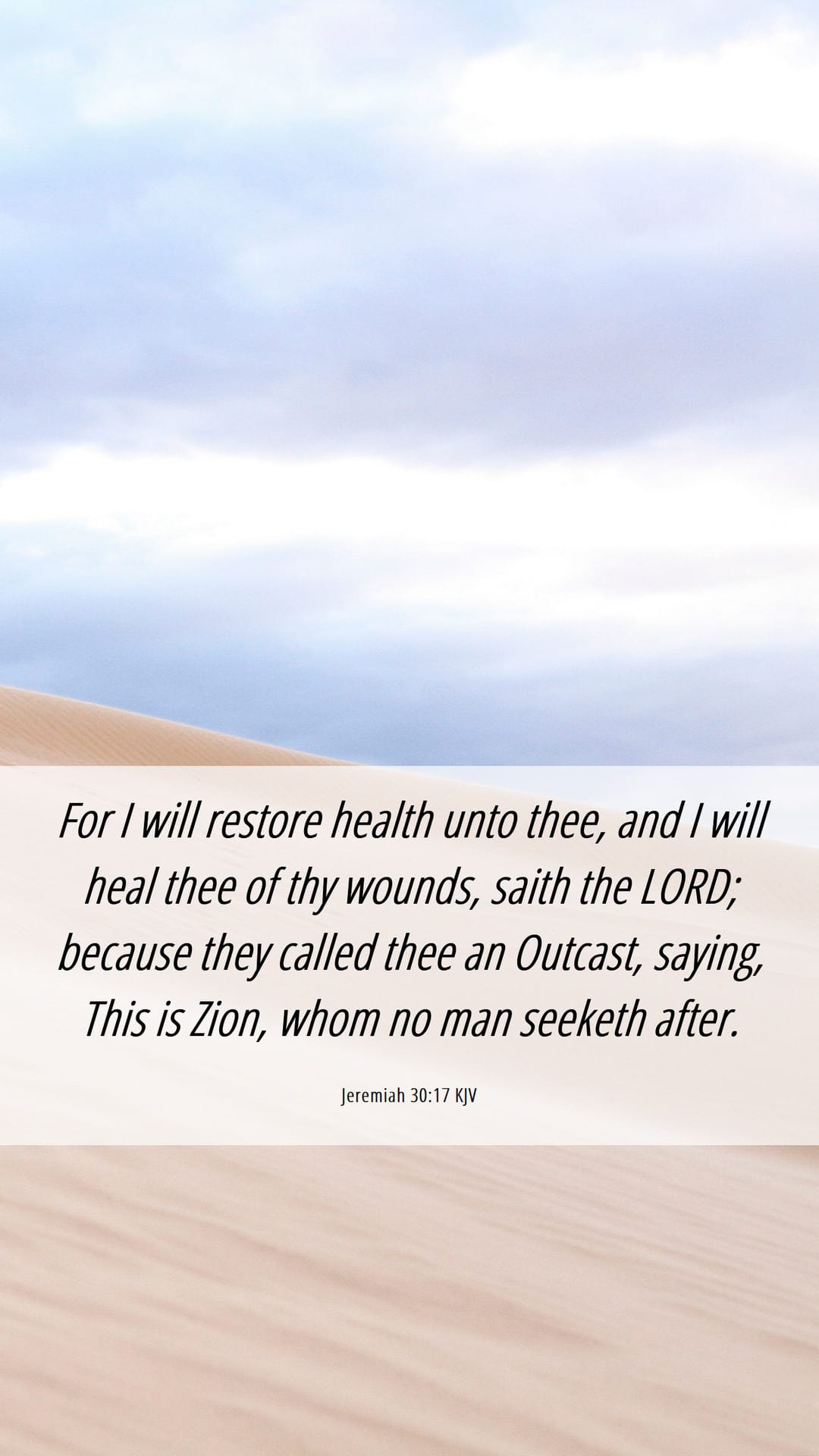
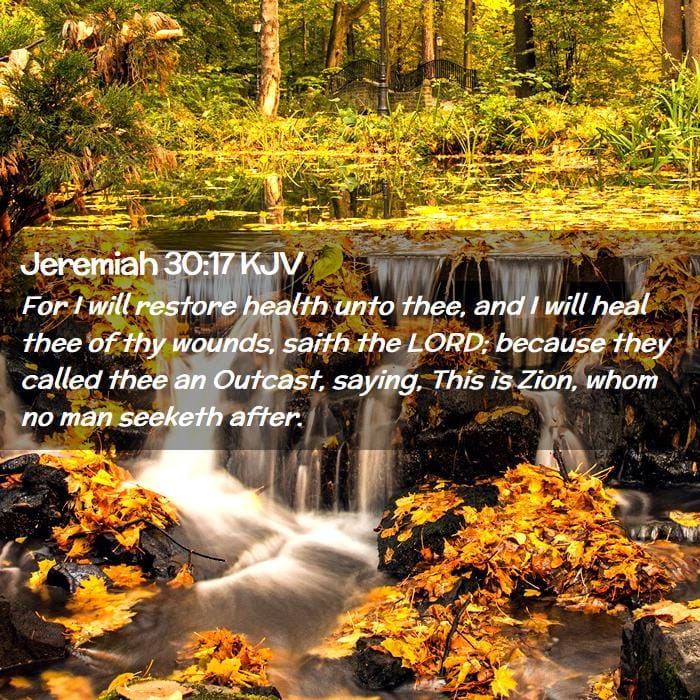
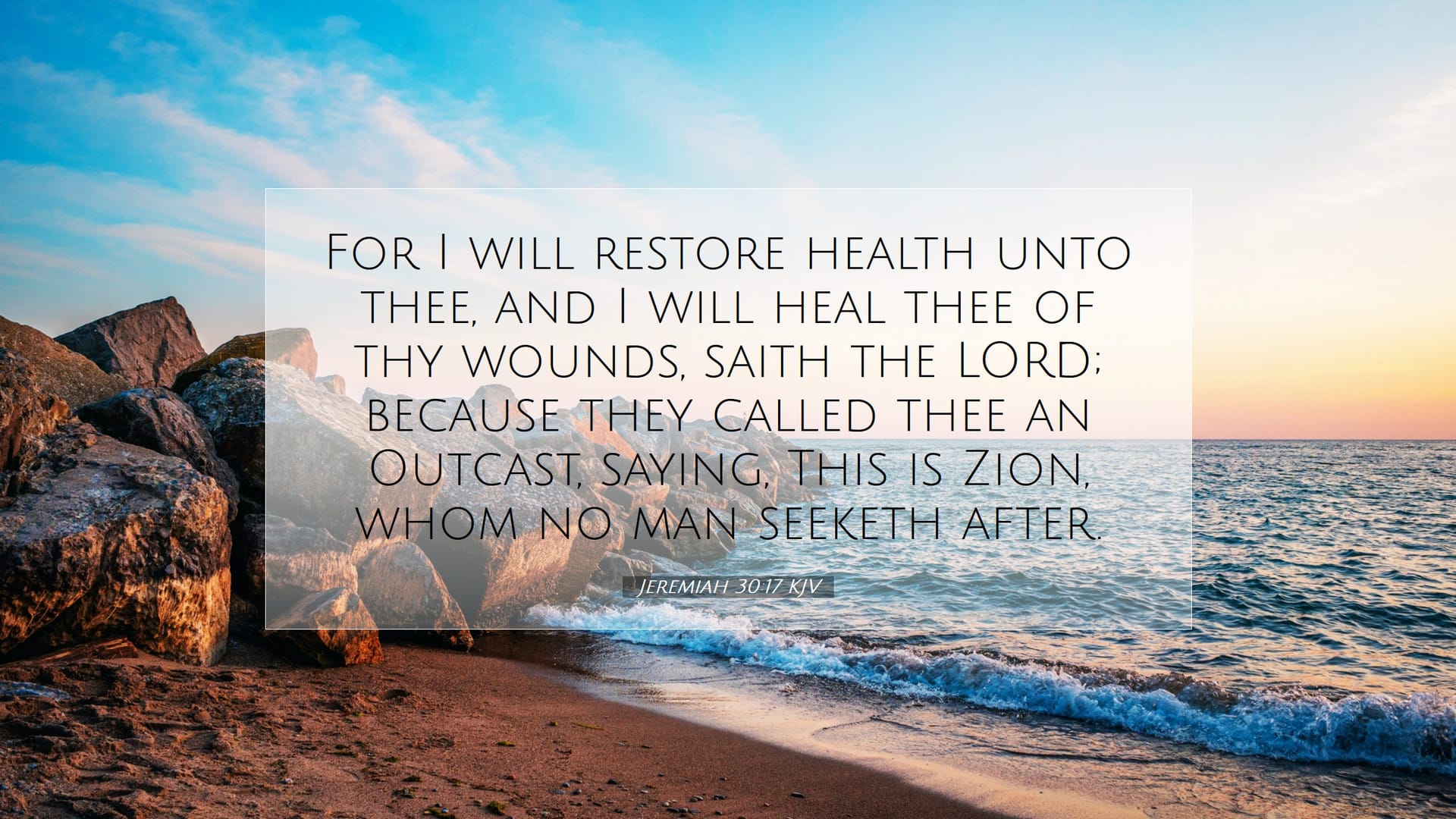
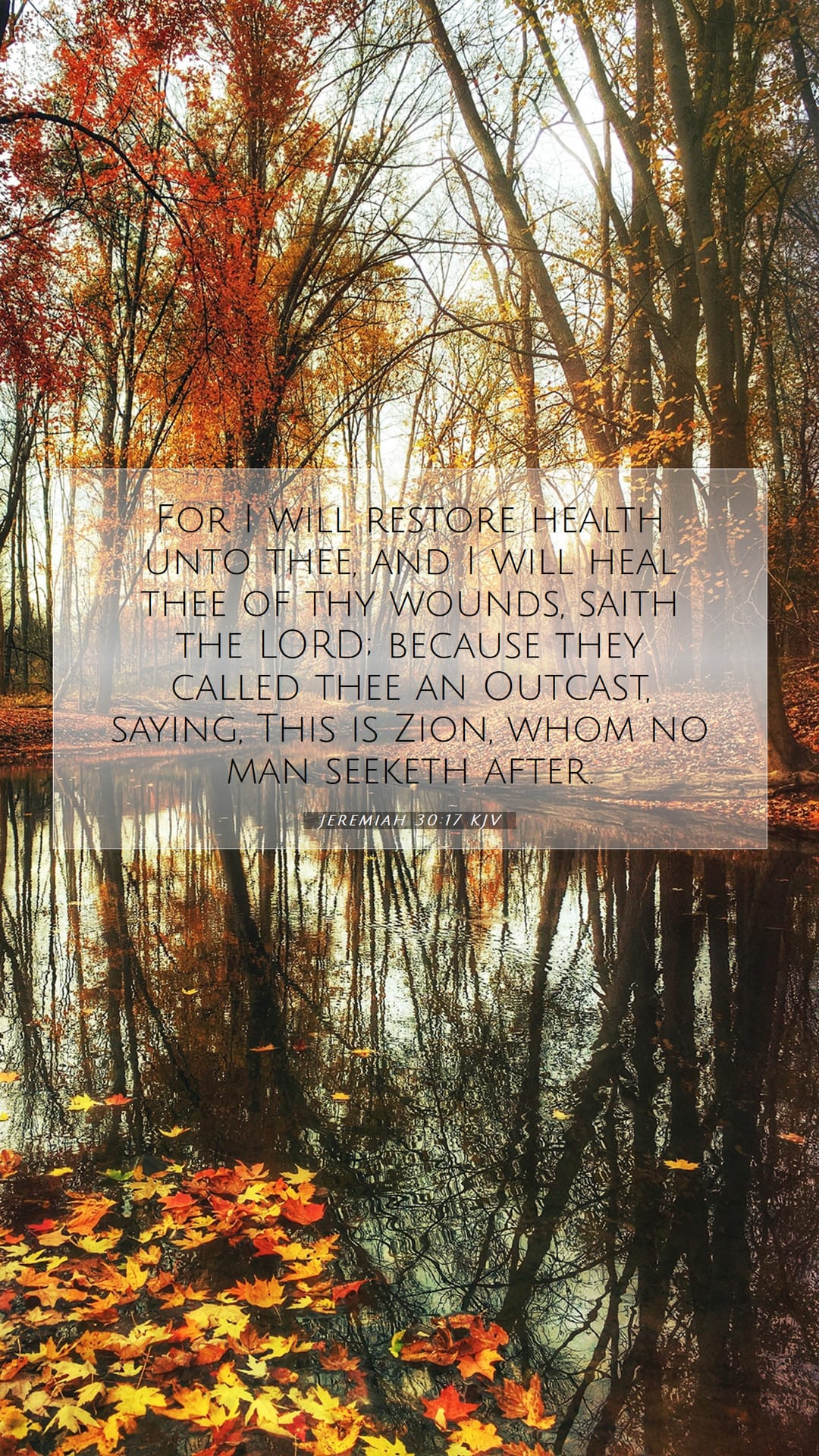

Bible Study on Jeremiah 30:17
Context of the Verse
Jeremiah 30 is part of a prophetic message known as the “Book of Consolation” (Jeremiah 30–33), delivered by God through the prophet Jeremiah during a time of national despair. Judah was facing exile and judgment due to its persistent rebellion against God. However, in the midst of divine warnings, God gives a promise of restoration, healing, and hope.
This verse is particularly addressed to Zion (Jerusalem), representing God’s people who had been broken, scattered, and scorned by other nations.
“For I will restore health unto thee”
- Divine Healing: This is not just physical healing, but spiritual and national restoration. God promises to bring vitality and wholeness back to His people.
- Restoration from Sin: The people had been wounded by their own sin and the consequences of it. Yet God does not abandon them; instead, He pledges to restore them.
Key Insight: The Hebrew word for health implies well-being, soundness, and wholeness — a total restoration.
“And I will heal thee of thy wounds”
- God as the Healer: He is portrayed as a compassionate physician who personally treats and heals the wounds of His people.
- Wounds inflicted by others: These are not only self-inflicted wounds of sin, but also the scars from exile, shame, oppression, and rejection by other nations.
Psalm 147:3 (KJV): "He healeth the broken in heart, and bindeth up their wounds."
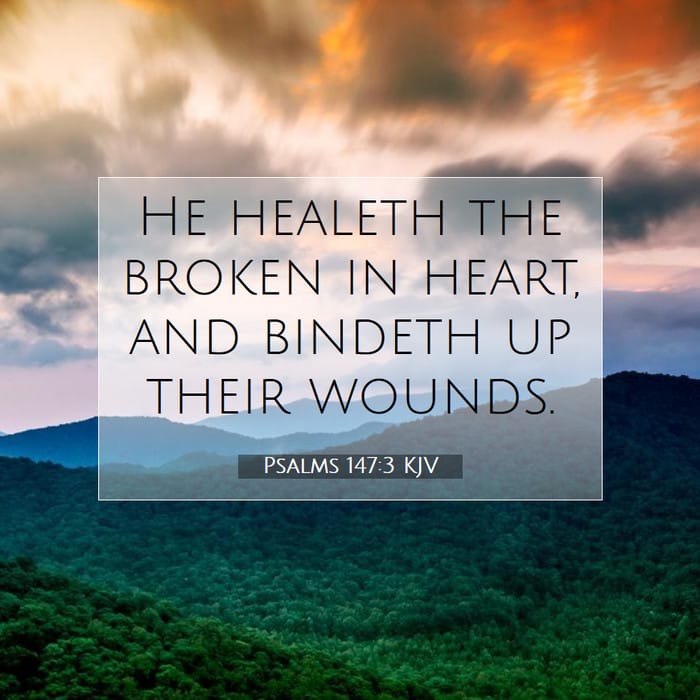
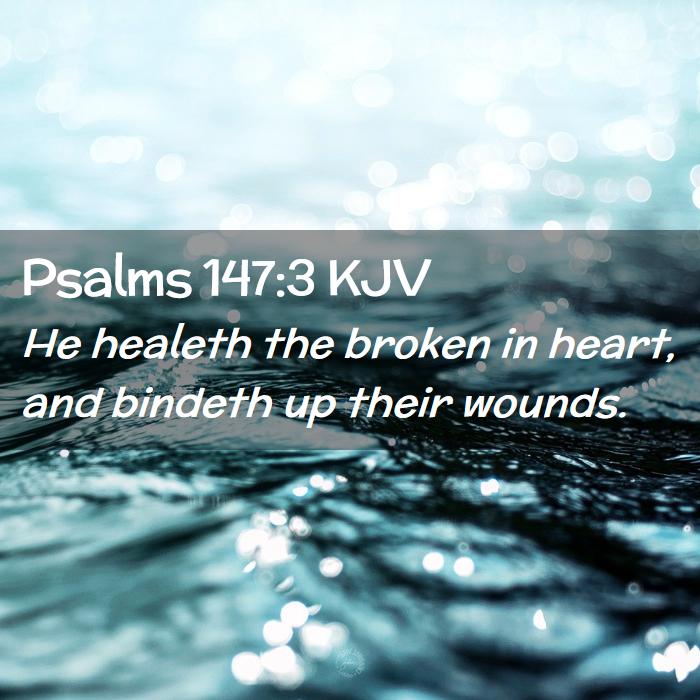
“Because they called thee an Outcast”
- Social Rejection: God's people had been rejected and mocked. Other nations declared them hopeless, forsaken, unworthy of help.
- God's Response to Shame: God steps in to reverse that rejection. What man has rejected, God restores.
Isaiah 62:12 (KJV): “And they shall call them, The holy people, The redeemed of the Lord: and thou shalt be called, Sought out, A city not forsaken.”
“This is Zion, whom no man seeketh after”
- Abandonment: Zion had become desolate. No one cared for her; she had no allies or friends. Yet in her lowest moment, God declares His love and concern.
- Reversal of Fortune: Though no man sought Zion, God did. He not only sought her, but promised healing and restoration.
Application for Today
This verse is a beacon of hope for anyone who feels:
- Broken by sin
- Rejected by others
- Overlooked or forgotten
- Wounded emotionally or spiritually
God's character remains the same — He restores what is broken, heals what is wounded, and seeks out the forsaken. The world may reject, but God reclaims and renews.
Certainly! Here's a self-assessment section you can add to the end of your Bible study on Jeremiah 30:17 (KJV). It encourages personal reflection and spiritual growth, and it's written in an approachable, heartfelt tone:
Self-Assessment: Is My Heart Ready for God’s Restoration?
Take a few quiet moments to reflect. Be honest with yourself and with God as you consider these questions. Let them guide you into deeper healing, prayer, and trust.
1. Am I carrying wounds I haven’t brought to God?
“I will heal thee of thy wounds…”
Have I been trying to manage pain on my own instead of surrendering it to the Lord?
2. Do I truly believe God still restores the broken?
Has doubt crept in because of how others have rejected me or because of past disappointments?
3. Have I accepted lies about my worth or identity?
God’s people were called “Outcast.”
Have I allowed shame, failure, or rejection to define me instead of God’s truth?
4. Am I making space in my life for healing?
Healing takes humility, stillness, and trust.
Am I carving out time in prayer, Scripture, and rest to receive what God wants to restore?
5. What step can I take today toward healing and wholeness?
Whether it’s prayer, confession, forgiveness, or simply being still before God—what is the Holy Spirit inviting me to do right now?
Final Reflection
Jeremiah 30:17 is more than just a comforting verse. It is a promise rooted in God’s covenant love. It tells us that God does not abandon the broken, but enters into our suffering to bring healing. He is not only a righteous Judge but also a tender Shepherd.
In your darkest moments, remember: God seeks the outcast. God heals the broken. God restores the forgotten.

